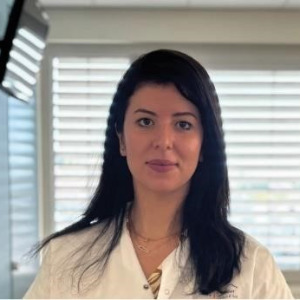Treatment Resistance & Sequencing
One of the greatest challenges in modern oncology is the emergence of therapy resistance, which limits the long-term effectiveness of even the most advanced cancer treatments. Understanding Treatment Resistance & Sequencing has therefore become a major focus of research aimed at improving patient outcomes and extending survival. Resistance can arise from genetic mutations, epigenetic changes, tumor microenvironment alterations, or adaptive cellular pathways that enable cancer cells to evade therapy. By studying these mechanisms, clinicians can design sequential treatment plans that anticipate resistance and adjust therapeutic strategies accordingly. Optimizing sequencing—whether between targeted therapies, immunotherapies, or chemotherapy—ensures that each line of treatment builds on the previous one to sustain tumor control while minimizing toxicity and preserving quality of life.
The strategic application of Treatment Resistance & Sequencing is transforming the way clinicians manage cancer progression and therapeutic failure. Advances in molecular diagnostics, real-time monitoring, and biomarker-driven decision-making now allow for earlier detection of resistance patterns and more precise adaptation of treatment regimens. Researchers are also exploring combination approaches and novel sequencing models that delay resistance onset and restore drug sensitivity. By integrating these insights into clinical practice, oncology is moving toward a more dynamic, personalized approach to care—one where continuous assessment and intelligent sequencing can outmaneuver cancer’s adaptability, improving long-term outcomes and transforming resistant disease into a manageable condition.

Rajvir Dahiya
University of California San Francisco, United States
Atif A Ahmed
University of Washington-Seattle Children’s Hospital, United States
Thomas J Webster
Northeastern University, United States
Paulo Cesar De Morais
Catholic University of Brasilia, Brazil
Allen Chen
Olympic Medical Center, United States
Shilpa S Dhar
UT MD Anderson Cancer Center, United States



Title : A novel blood-based mRNA genomics technology for cancer diagnosis and treatment
Rajvir Dahiya, University of California San Francisco, United States
Title : Nanomedicine in humans: 30 years of fighting diseases
Thomas J Webster, Northeastern University, United States
Title : Diagnosis and treatment of primary cardiac lymphoma in an immunocompetent 27-year-old man
Moataz Taha Mahmoud Abdelsalam, Madinah Cardiac Center, Saudi Arabia
Title : tRNA-derived fragment 3′tRF-AlaAGC modulates cell chemoresistance and M2 macrophage polarization via binding to TRADD in breast cancer
Feng Yan, The Affiliated Cancer Hospital of Nanjing Medical University, China
Title : Multiplexed biosensor detection of cancer biomarkers
Michael Thompson, University of Toronto, Canada
Title : Personalized and Precision Medicine (PPM) through the view of biodesign-inspired translational research: An option for clinical oncologists, caregivers, and consumers to realize the potential of genomics-informed care to secure human biosafety
Sergey Suchkov, N.D. Zelinskii Institute for Organic Chemistry of the Russian Academy of Sciences, Russian Federation